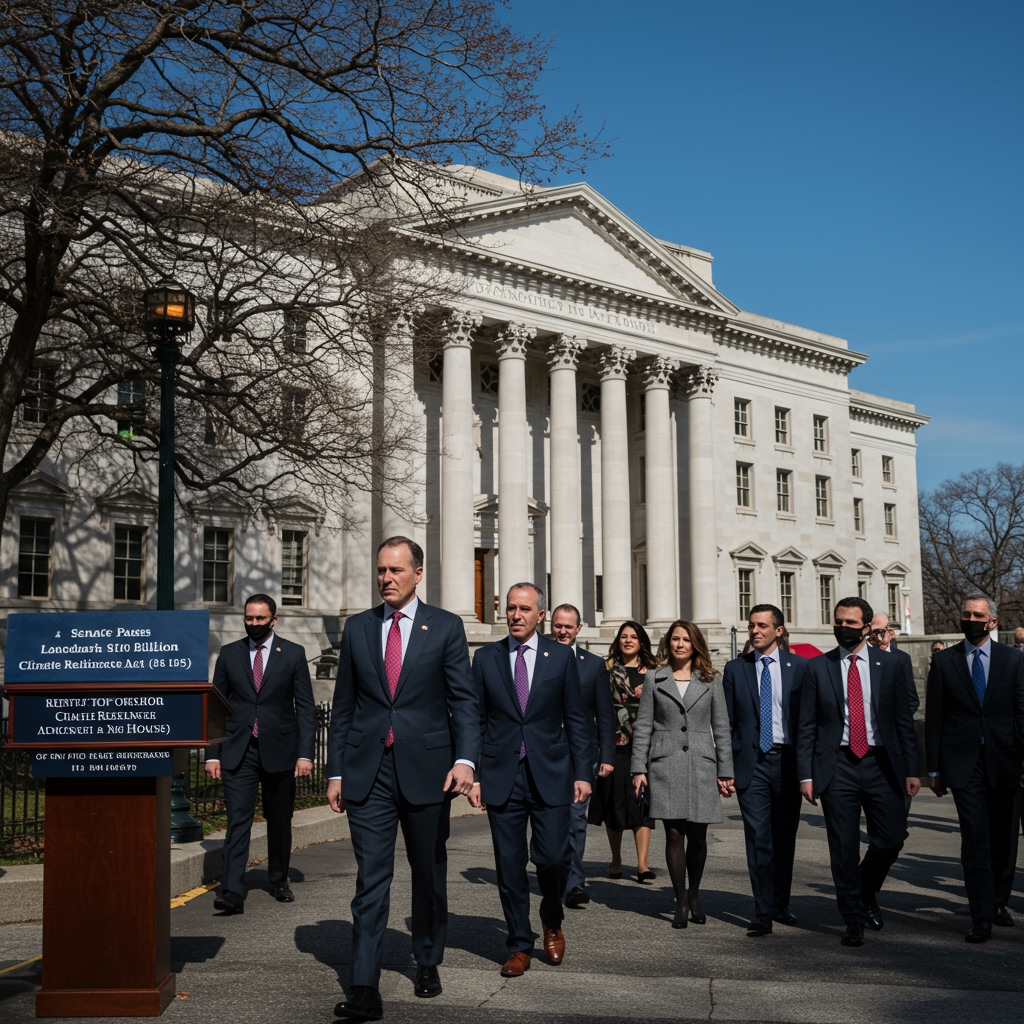Paris, France – In a moment hailed by many as a pivotal turning point for global environmental action, representatives from 195 nations formally convened here on March 17, 2025, to sign the landmark Global Climate Accord. This comprehensive agreement, the culmination of extensive negotiations and a significant UN-backed initiative steered by Special Envoy Dr. Anya Sharma, sets forth ambitious new commitments aimed at confronting the accelerating challenges of climate change on a global scale.
The signing ceremony, held at a convention center overlooking the River Seine, marked the official adoption of an accord designed to fundamentally reshape international efforts to mitigate greenhouse gas emissions and build resilience against the impacts of a warming planet. The presence of delegates from nearly every country underscored the near-universal recognition of the climate crisis and the collective will, despite inherent complexities and diverse national circumstances, to forge a common path forward.
The Global Climate Accord is built upon the foundational principle of shared responsibility, differentiated capabilities, and the urgent need for decisive action. Its central, most striking commitment is the pledge by all signatory countries to strive for achieving net-zero carbon emissions by 2060. This target represents a significant acceleration of decarbonization efforts for many economies and signals a profound shift away from fossil fuels towards sustainable energy sources and practices.
Key Provisions of the Accord
Beyond the overarching net-zero target, the accord contains several critical provisions intended to provide both the means and the mechanisms for its successful implementation. One of the most notable is the establishment of a substantial $500 billion fund. This fund is explicitly dedicated to assisting developing nations with their transition to cleaner energy, supporting adaptation measures against climate impacts, and fostering sustainable development pathways. The recognition of the disproportionate burden faced by many developing economies and the necessity of financial and technological support for their green transition was a key element in securing broad consensus.
Another cornerstone of the agreement is the creation of a new international body, the Global Climate Review Board. This board is tasked with the vital responsibility to monitor progress made by individual nations towards their commitments, including emission reduction targets and contributions to the collective funding goals. It will also work to ensure compliance with the accord’s provisions over the next 35 years, providing transparency and accountability in the global climate action framework. The board is envisioned as a mechanism for fostering cooperation, sharing best practices, and identifying areas where further effort or support is needed.
A “Critical Step” Amidst Challenges
The Global Climate Accord has been widely received with a mixture of optimism and cautious pragmatism. Experts in climate science, international relations, and economics widely hail the accord as a critical step forward – arguably the most significant multilateral environmental agreement since the 2015 Paris Agreement itself (on which this new accord builds and expands). They point to the binding nature of the commitments, the ambitious net-zero by 2060 target, and the concrete mechanisms for finance and review as reasons for this positive assessment.
However, the path ahead is far from obstacle-free. As many observers and even some signatories acknowledge, significant challenges remain in implementation and securing sustained funding. Translating national commitments into concrete policies, investments, and behavioral changes across diverse political and economic landscapes will require unprecedented levels of sustained political will and public support. Ensuring the $500 billion fund is fully resourced, effectively managed, and delivers tangible results for developing nations will also be an ongoing challenge requiring diligent oversight and international cooperation.
Furthermore, the effectiveness of the Global Climate Review Board will depend heavily on the willingness of signatory countries to be transparent and responsive to its findings. Building trust and ensuring equitable assessments across 195 nations with vastly different starting points and capacities will test the resilience and impartiality of this new institution.
Looking Ahead
The signing of the Global Climate Accord on March 17, 2025, in Paris, France, represents a powerful symbol of renewed global determination to address the climate crisis collaboratively. Spearheaded by the UN-backed initiative under Special Envoy Dr. Anya Sharma, it sets a clear long-term goal of net-zero carbon emissions by 2060, backed by a substantial $500 billion fund and a dedicated Global Climate Review Board for oversight over the next 35 years. While the accord is celebrated as a critical step, the real measure of its success will lie in the ability of signatory countries to overcome the inherent challenges in implementation and securing sustained funding in the decades to come. The focus now shifts from negotiation to action, as nations embark on the complex journey towards a decarbonized future envisioned by this historic agreement. The Global Climate Accord.















